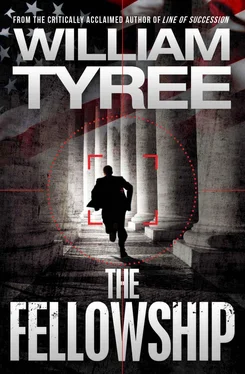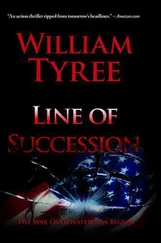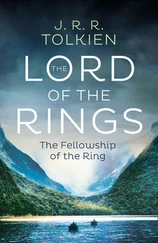William Tyree - The Fellowship
Здесь есть возможность читать онлайн «William Tyree - The Fellowship» весь текст электронной книги совершенно бесплатно (целиком полную версию без сокращений). В некоторых случаях можно слушать аудио, скачать через торрент в формате fb2 и присутствует краткое содержание. Год выпуска: 2013, Издательство: Massive, Жанр: Триллер, на английском языке. Описание произведения, (предисловие) а так же отзывы посетителей доступны на портале библиотеки ЛибКат.
- Название:The Fellowship
- Автор:
- Издательство:Massive
- Жанр:
- Год:2013
- ISBN:нет данных
- Рейтинг книги:5 / 5. Голосов: 1
-
Избранное:Добавить в избранное
- Отзывы:
-
Ваша оценка:
- 100
- 1
- 2
- 3
- 4
- 5
The Fellowship: краткое содержание, описание и аннотация
Предлагаем к чтению аннотацию, описание, краткое содержание или предисловие (зависит от того, что написал сам автор книги «The Fellowship»). Если вы не нашли необходимую информацию о книге — напишите в комментариях, мы постараемся отыскать её.
The Fellowship — читать онлайн бесплатно полную книгу (весь текст) целиком
Ниже представлен текст книги, разбитый по страницам. Система сохранения места последней прочитанной страницы, позволяет с удобством читать онлайн бесплатно книгу «The Fellowship», без необходимости каждый раз заново искать на чём Вы остановились. Поставьте закладку, и сможете в любой момент перейти на страницу, на которой закончили чтение.
Интервал:
Закладка:
He activated a small silver device about the size of a credit card and pointed it directly at Zhu. A blur of yellow numbers began flashing on the device screen. It seemed to be scanning frequencies. Some type of bug detector, Zhu figured. It seemed that Lars was a cautious man. He wanted to make sure Zhu wasn’t wired.
The German’s serious, black eyes rolled up at Zhu. “What’s in your pocket?”
Zhu pulled out his phone. He turned it this way and that in his hand, as if to demonstrate its innocuousness.
“Not good,” Lars said. “They can track our location with it. Pull the battery out.”
“Okay, but can I keep the phone for later? All my pictures and stuff are on it.”
“No.” He pointed to a white handkerchief neatly folded into a cup holder. “And wipe your fingerprints off the door panel and anything else you touched.”
Zhu wasn’t used to being talked to like this. Even his customers within the Chinese government treated him like a prince. “What’s the point?” he said. “Spencer’s blood is already all over the grill.”
“Just do as I say, and you will survive.” He pulled a duffel bag from the back seat and tossed it into Zhu’s lap. “Then change clothes. I have a motorcycle waiting on the other side of the garage.”
Zhu unzipped the bag and found a pair of black jeans, a motorcycle helmet, a white V-neck T-shirt and blue Superga sneakers. He picked up the helmet and flipped down the visor. It was painted black.
“The Shepherd is in a secret location,” Lars said, explaining the blackout visor. “Trust me. A helmet is more comfortable than a blindfold.”
Then Zhu saw them. Over Lars’ shoulder, a black Mini Cooper with tinted windows pulled up abruptly. There would have been nothing particularly threatening about such a small car, except that the cockeyed parking job made it clear that they didn’t intend to stay long. The passenger-side window lowered.
The bioengineer’s eyes suddenly expanded into coin-size saucers. Before Lars could turn to see what had frightened his passenger, the Range Rover’s driver side was taking automatic gunfire. The side windows were instantly crystallized. Zhu ducked for cover.
National Counterterrorism Center
Carver stood in a darkened conference room, pointing a laser dot at a magnified surveillance photo. His jet-black hair — a gentleman’s cut that was closely cropped around the sides, but short on top — was still damp with perspiration. The speed with which Crossbow had spun out of control had stunned him. He rubbed his unshaven chin with the back of his hand and looked at the five agency suits sitting around the conference table. The briefing had been planned as a simple FYI describing the ground game in Rome. Now it was damage control.
“The objective of Operation Crossbow,” he started, “is to gain visibility into what military projects this man is working on. His name is Adrian Zhu.”
He drank from a water bottle as the bigwigs in the room got a good look. The snapshot Callahan had taken at the opera showed Zhu with longish black curly hair, a small, angular face and black plastic designer eyeglasses.
“Zhu is considered one of the world’s most brilliant bioengineers,” Carver said. “He was born in Boston to first-generation Chinese immigrants. After dropping out of MIT, he hooked up with a business partner, Spencer Griffin, and started a biotech firm in Boston called LifeEmberz. Who here has heard of them?”
None of the suits raised their hands.
“You wouldn’t have. In the early years, they worked in the shadows using private funds. But let me ask another question. Who here has had their genome decoded in the last year?”
Three out of the five people in the room raised their hands.
“LifeEmberz had a hand in making that possible. Before they tackled it, this was something that only the super-rich could afford to do. It cost about a hundred thousand dollars per person, and even then, the evidence of whether you were really carrying a Parkinson’s gene, or a cancer gene, was pretty iffy. Within four years, LifeEmberz and its partners advanced the technology so much that the basic testing kits were being sold in over the counter.”
“Who funded them?” The voice belonged to Claire Shipmont, the agency’s deputy director. Like most everyone in the room, this was her first exposure to Operation Crossbow. She was a highly regarded career fed who, it was rumored, would soon be tapped to run Homeland Security.
“Good question. They were funded by an anonymous group that was so protective of its privacy that they actually delivered the seed money in cash. God knows what kind of kickback they got when LifeEmberz got bored of the genome business.”
Carver advanced to the next slide, which showed a silent video of Adrian Zhu standing over a mummified body.
“This was taken in Egypt. After LifeEmberz sold their genome decoding technology to a medical testing company, they used the money to do whatever interested them. One project had them utilizing the mitochondrial DNA found within hair samples to do what Zhu called ‘extreme paleo-DNA’ work. He was interested in exhuming dead bodies, preferably of people who had been dead for more than 300 years, and using the DNA within hair samples to find out things about them. For example, eye color, skin pigment, even defects that might have caused their deaths.”
”And people paid them for this?” Shipmont said.
“We don’t know. LifeEmberz never filed another U.S. tax return.”
“They closed down?”
“I’m getting to that.” Carver clicked to the next video clip, which showed Adrian Zhu, wearing a biohazard suit, working in a spotless lab. “Zhu had an idea that if LifeEmberz could exhume the body of one of your ancestors — a grandparent, for example — and extract mitochondrial DNA from it, they might be able to then take your embryonic stem cells and in a lab environment, create fertilized eggs that were just like your ancestors, but genetically superior.”
“And that freaked people out,” another voice said. Julian Speers, the Director of National Intelligence, had slipped into the back of the room. Speers had been the White House chief of staff under the previous administration before current president Eva Hudson offered him the role as her intelligence czar.
The move had been a controversial one. Speers was a superb operational manager, but he had no prior intelligence experience. Although the appointment had raised a lot of eyebrows, Speers was only the latest in a line of White House chiefs to head up a federal agency. Ronald Reagan’s chief of staff, James Baker, had gone on to become secretary of the treasury, and later, secretary of state. Bill Clinton’s chief of staff, Leon Panetta, had been appointed CIA director and later, secretary of defense. The theory was that operational expertise, coupled with a lack of specialty knowledge, could actually be an advantage. They were, by nature, forced to make decisions based on the big picture.
But heading up the ODNI was an enormous job, and one that even Carver didn’t know if his friend was up for. Speers was now a cabinet member with oversight of the entire intelligence community, including the CIA, FBI, NSA, Homeland Security and other agencies.
“Glad you could make it,” Carver said. “And you’re right, of course. LifeEmberz threw themselves into all kinds of controversy. At one point they were getting a couple hundred death threats a week. Mr. Zhu packed his company up and moved their offices to Beijing.”
“Why China?” Shipmont said.
“Besides a hot economy? Forty-two percent of the population is agnostic or atheist, and about 30 percent subscribe to folk religions, like Taoism. That equated to a lot less moral judgment about his research.”
Читать дальшеИнтервал:
Закладка:
Похожие книги на «The Fellowship»
Представляем Вашему вниманию похожие книги на «The Fellowship» списком для выбора. Мы отобрали схожую по названию и смыслу литературу в надежде предоставить читателям больше вариантов отыскать новые, интересные, ещё непрочитанные произведения.
Обсуждение, отзывы о книге «The Fellowship» и просто собственные мнения читателей. Оставьте ваши комментарии, напишите, что Вы думаете о произведении, его смысле или главных героях. Укажите что конкретно понравилось, а что нет, и почему Вы так считаете.











